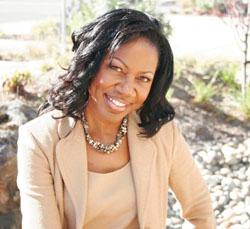“Fortunate,” “blessed,” “nurtured.” Sadly, these are not the words that many former foster youth use to describe their upbringing.
 Mary Stutts is not your average foster care alumna. And she knows it.
Mary Stutts is not your average foster care alumna. And she knows it.
Mary entered foster care at the age of five, after her parents split up and her mother was left to care for five children. The pressure of being a single mom was too much, and she suffered a mental breakdown.
For a while after her mother was institutionalized, Mary and her siblings were shuffled around, living with various family members. After what seemed a long time but was actually only a few months, they met the couple that would change the course of Mary’s life.
Frank Wilson, a Baptist minister, and his wife, Mary, a fifth grade teacher, owned a large plantation in Louisiana left to Frank and his siblings. Unable to conceive children of their own, the couple committed to sharing their lives with foster children. They brought Mary and her siblings from Texas to their home in Tallulah, LA.
“I will never forget the night we arrived. As we approached, I couldn’t believe what a beautiful house it was. It wasn’t a big fancy house at all, but compared to the places we had been staying, it just seemed unreal. Then I went inside—and there was so much food! There hadn’t been much food in the places we were staying—and I love to eat! The house, the food, the loving people who had driven all that way and taken us in, I thought to myself, this is heaven!”
Mary and her siblings immediately settled into a large extended family that included seven foster cousins taken in by siblings of Frank.
“To me, those of us who were the foster children seem to have been treated even better than the children who were the natural children! Everybody just doted on us, it was a very nurturing environment,” Mary says.
When Mary’s mother was released from the hospital and began to establish a new life for herself, she wanted to bring her children home. Mary’s siblings returned to their mother, but her foster grandmother put her foot down—Mary was staying put. She remained with her foster family for the rest of her childhood, benefitting from every opportunity Frank and Mary could provide, including a college education.
Today, Mary is committed to improving the lives of children who are not as fortunate as she was. A health care communications consultant and author of The Missing Mentor: Women Advising Women on Power, Progress and Priorities, Mary has served on the board of the National CASA Association and donated a portion of the proceeds from her book to the organization.
“The issues that CASA is working on, such as supporting youth aging out of care, are very important to me. I was extremely fortunate and very blessed. My foster parents prepared me to go to college from the beginning. It would be great if all foster kids could look forward to that sort of transition. I am trying to do whatever I can to give other foster children the life and the opportunities that I had.”